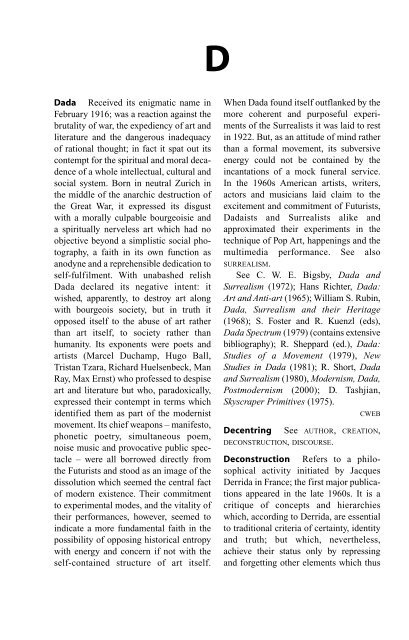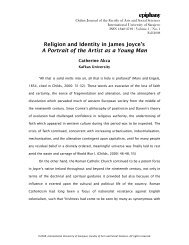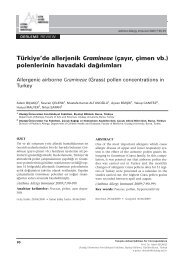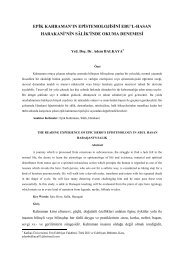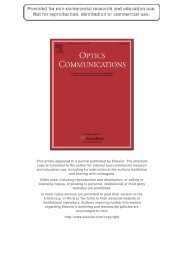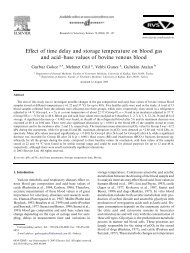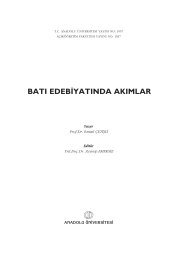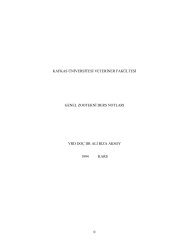The Routledge Dictionary of Literary Terms
The Routledge Dictionary of Literary Terms
The Routledge Dictionary of Literary Terms
Create successful ePaper yourself
Turn your PDF publications into a flip-book with our unique Google optimized e-Paper software.
Dada Received its enigmatic name in<br />
February 1916; was a reaction against the<br />
brutality <strong>of</strong> war, the expediency <strong>of</strong> art and<br />
literature and the dangerous inadequacy<br />
<strong>of</strong> rational thought; in fact it spat out its<br />
contempt for the spiritual and moral decadence<br />
<strong>of</strong> a whole intellectual, cultural and<br />
social system. Born in neutral Zurich in<br />
the middle <strong>of</strong> the anarchic destruction <strong>of</strong><br />
the Great War, it expressed its disgust<br />
with a morally culpable bourgeoisie and<br />
a spiritually nerveless art which had no<br />
objective beyond a simplistic social photography,<br />
a faith in its own function as<br />
anodyne and a reprehensible dedication to<br />
self-fulfilment. With unabashed relish<br />
Dada declared its negative intent: it<br />
wished, apparently, to destroy art along<br />
with bourgeois society, but in truth it<br />
opposed itself to the abuse <strong>of</strong> art rather<br />
than art itself, to society rather than<br />
humanity. Its exponents were poets and<br />
artists (Marcel Duchamp, Hugo Ball,<br />
Tristan Tzara, Richard Huelsenbeck, Man<br />
Ray, Max Ernst) who pr<strong>of</strong>essed to despise<br />
art and literature but who, paradoxically,<br />
expressed their contempt in terms which<br />
identified them as part <strong>of</strong> the modernist<br />
movement. Its chief weapons – manifesto,<br />
phonetic poetry, simultaneous poem,<br />
noise music and provocative public spectacle<br />
– were all borrowed directly from<br />
the Futurists and stood as an image <strong>of</strong> the<br />
dissolution which seemed the central fact<br />
<strong>of</strong> modern existence. <strong>The</strong>ir commitment<br />
to experimental modes, and the vitality <strong>of</strong><br />
their performances, however, seemed to<br />
indicate a more fundamental faith in the<br />
possibility <strong>of</strong> opposing historical entropy<br />
with energy and concern if not with the<br />
self-contained structure <strong>of</strong> art itself.<br />
D<br />
When Dada found itself outflanked by the<br />
more coherent and purposeful experiments<br />
<strong>of</strong> the Surrealists it was laid to rest<br />
in 1922. But, as an attitude <strong>of</strong> mind rather<br />
than a formal movement, its subversive<br />
energy could not be contained by the<br />
incantations <strong>of</strong> a mock funeral service.<br />
In the 1960s American artists, writers,<br />
actors and musicians laid claim to the<br />
excitement and commitment <strong>of</strong> Futurists,<br />
Dadaists and Surrealists alike and<br />
approximated their experiments in the<br />
technique <strong>of</strong> Pop Art, happenings and the<br />
multimedia performance. See also<br />
SURREALISM.<br />
See C. W. E. Bigsby, Dada and<br />
Surrealism (1972); Hans Richter, Dada:<br />
Art and Anti-art (1965); William S. Rubin,<br />
Dada, Surrealism and their Heritage<br />
(1968); S. Foster and R. Kuenzl (eds),<br />
Dada Spectrum (1979) (contains extensive<br />
bibliography); R. Sheppard (ed.), Dada:<br />
Studies <strong>of</strong> a Movement (1979), New<br />
Studies in Dada (1981); R. Short, Dada<br />
and Surrealism (1980), Modernism, Dada,<br />
Postmodernism (2000); D. Tashjian,<br />
Skyscraper Primitives (1975).<br />
CWEB<br />
Decentring See AUTHOR, CREATION,<br />
DECONSTRUCTION, DISCOURSE.<br />
Deconstruction Refers to a philosophical<br />
activity initiated by Jacques<br />
Derrida in France; the first major publications<br />
appeared in the late 1960s. It is a<br />
critique <strong>of</strong> concepts and hierarchies<br />
which, according to Derrida, are essential<br />
to traditional criteria <strong>of</strong> certainty, identity<br />
and truth; but which, nevertheless,<br />
achieve their status only by repressing<br />
and forgetting other elements which thus


